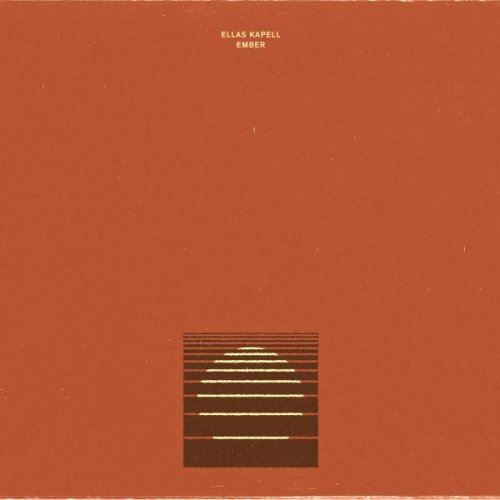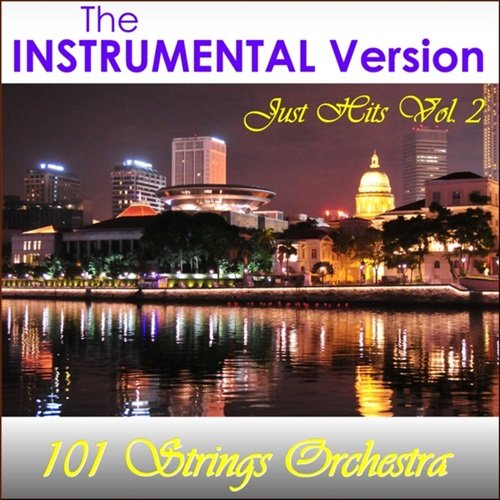Claudio Abbado - Schubert: Fierrabras (1990)
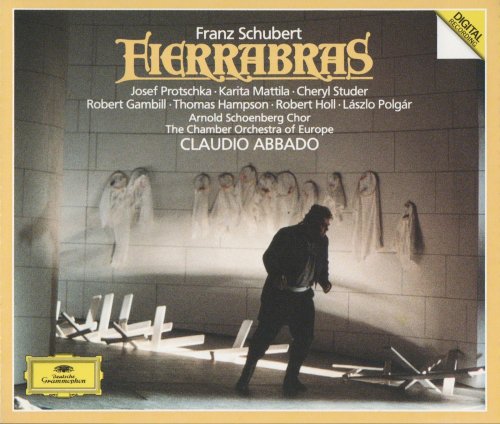
Artist: Claudio Abbado
Title: Schubert: Fierrabras
Year Of Release: 1990
Label: Deutsche Grammophon
Genre: Classical
Quality: FLAC (image+.cue,log,scans)
Total Time: 02:23:54
Total Size: 759 Mb
WebSite: Album Preview
Tracklist: Title: Schubert: Fierrabras
Year Of Release: 1990
Label: Deutsche Grammophon
Genre: Classical
Quality: FLAC (image+.cue,log,scans)
Total Time: 02:23:54
Total Size: 759 Mb
WebSite: Album Preview
Franz Schubert (1797-1828)
Fierrabras - Heroic-Romantoc Opera in three acts
CD 1:
01. Fierabras, opera, D. 796- Overture [0:08:49.00]
02. Fierabras, opera, D. 796- Act 1- -Der runde Silberfaden? [0:06:06.30]
03. Fierabras, opera, D. 796- Act 1- -O mög' auf froher Hoffnung Schwigen? [0:04:15.65]
04. Fierabras, opera, D. 796- Act 1- -Zu hohen Ruhmespforten? [0:02:59.55]
05. Fierabras, opera, D. 796- Act 1- -Die Beute laß, o Herr, die Krieger teilen- - -Des Krieges Los hat euch mir übergeben- - -We [0:07:49.32]
06. Fierabras, opera, D. 796- Act 1- -Der Landestöchter fromme Pflichten- - -Dem Erfolg vertrauen- - -Zu hohen Ruhmespforten? [0:11:06.25]
07. Fierabras, opera, D. 796- Act 1- -Laß uns mutvoll hoffen? [0:01:41.25]
08. Fierabras, opera, D. 796- Act 1- -Der Abend sinkt auf stiller Flur- - -Was quälst du mich, o Mißgeschick... In tiefbewegter B [0:20:23.48]
09. Fierabras, opera, D. 796- Act 1- -Dich rief ich, Eginhard- - -Fort zum Siegesreigen? [0:05:14.60]
CD 2:
01. Fierabras, opera, D. 796- Act 2- -Im jungen Morgenstahle? [0:03:40.67]
02. Fierabras, opera, D. 796- Act 2- -Beschlossen ist's, ich löse seine Ketten- - -Verwegene! Was führt euch hieher-- - -Was ist [0:06:50.35]
03. Fierabras, opera, D. 796- Act 2- -Weit über Glanz und Erdenschimmer? [0:06:12.35]
04. Fierabras, opera, D. 796- Act 2- -Verderben denn und Fluch? [0:03:19.70]
05. Fierabras, opera, D. 796- Act 2- -Laßt Friede in die Hallen? [0:03:07.03]
06. Fierabras, opera, D. 796- Act 2- -Im Tode sollt ihr büßen- - -Sie sollen erblassen in heimlicher Not? [0:04:29.25]
07. Fierabras, opera, D. 796- Act 2- -Die Brust, gebeugt von Sorgen? [0:02:16.20]
08. Fierabras, opera, D. 796- Act 2- -O teures Vaterland? [0:01:59.17]
09. Fierabras, opera, D. 796- Act 2- -Ha! Was ist das-- - -Selbst an des Grabes Rande? [0:05:48.30]
10. Fierabras, opera, D. 796- Act 2- -Der Hoffnung Strahl, den du gegeben? [0:02:55.60]
11. Fierabras, opera, D. 796- Act 2- -Uns führt der Vorsicht weise Hand- - -Schützt ihn, ihr ew'gen Mächte? [0:04:43.38]
12. Fierabras, opera, D. 796- Act 3- -Bald tönet der Reigen? [0:04:15.22]
13. Fierabras, opera, D. 796- Act 3- -Bald wird es klar- - -Wo ist mein königlicher Herr-? [0:05:45.10]
14. Fierabras, opera, D. 796- Act 3- -Wenn hoch im Wolkensitze? [0:03:00.60]
15. Fierabras, opera, D. 796- Act 3- -Des Jammers herbe Qualen? [0:04:01.55]
16. Fierabras, opera, D. 796- Act 3- -Welch neuer Schreck- - -Ha, Erbarmen, haltet ein!? [0:02:05.33]
17. Fierabras, opera, D. 796- Act 3- -Der Rache Opfer fallen- - -Erbarmen fleht zu deinen Füßen? [0:04:24.10]
18. Fierabras, opera, D. 796- Act 3- -Er ist mein Vater, halte ein- - -Der Sieg begleitet meine tapfern Heere- - -Vereint durch B [0:06:31.47]
Performers:
Arnold Schoenberg Chor
The Chamber Orchestra of Europe
Claudio Abbado - conductor
Robert Holl
Karita Mattila
Thomas Hampson
Robert Gambil
László Polgár
Josef Protschka
Cheryl Studer
Brigitte Balleys
Hartmut Welker
Schubert began at least 16 operas; he completed only half of them; only one of these was performed in his lifetime; and he seems not to have seen it. It is an extraordinary story, and a melancholy one as he keeps up the struggle to succeed in the genre where he believed real fame for a composer must lie. There have been persistent attempts to revive them, attempts that usually founder on the realization that the greatest musical gifts cannot make a successful opera if a real dramatic instinct is lacking. Schubert never had the opportunity to see what worked or did not work in his operas on the stage; and his greatest admirers must acknowledge that such features of his style as his marvellous capacity for sustaining a simple musical figure (which can be at the centre of his songs and his symphonic movements) can rule the drama, rather than be overruled by it.
Fierrabras, his last completed opera, is not free of this fault, but the magnificence of the music has prompted attempts at resurrection. Composed in 1823, it did not get a performance until a mangled version was staged in 1897. The 1970s saw greater interest, and there followed the American premiere in 1980, and the British premiere in 1986 in Oxford, a suitable enough home for this apparently lost cause. But then along came Claudio Abbado, and his performances of the work in Vienna in May 1988 revealed the work's real power; there was a BBC broadcast, and now this set of records made from live performances. The actual recording is not ideal, with some poor balance in ensembles, and some rather odd 'biffing' noises; but that is of no account.
The plot of Fierrabras is too complex for summary here, but concerns the tangled loves and loyalties of five people caught up in Charlemagne's Moorish wars. It has its awkwardnesses, for Schubert was to an extent as much at the mercy of the fashion for chivalric conventions as was Weber with Euryanthe, whose unsuccessful Vienna premiere, just as Schubert had finished his own work, probably helped to prevent a production of the latter. For all Schubert's dubious view of Euryanthe, the two composers can reach similar solutions, perhaps the more readily as Fierrabras reflects an admiration for Der Freischutz. There is the Singspiel basis, with use of melodrama, and a melodic manner that probably acknowledges the Viennese reputation of Cherubini as well as that of Weber. But the style is always Schubert's. The arias, including the more song-like ones, are of a different cut to his Lieder (even to the scena-like early Lieder). The choruses, among them the beautiful unaccompanied ''O teures Vaterland'', reflect his understanding of ensemble singing gained in youth, and are here splendidly handled especially in the scenes where they divide into opposed groups: Abbado makes of these, notably in Act 2, some of the most exciting parts of the opera. Schubert's orchestral writing, too, is marvellously effective, both in using his symphonic strengths to build up tension and in some beautiful and entirely personal strokes, such as in the Act 1 duet ''Der Abend sinkt'' when Eginhard's sorrowful A minor serenade, with clarinet obbligato, is answered by Emma turning the music consolingly to the major, with the obbligato now on flute.
Robert Gambill sings the part strongly, if not as tenderly as he might; Karita Mattila is a touching Emma. Fierrabras himself, the young Moorish hero, is finely taken by Josef Protschka; the Moorish King and his principal Christian adversary, who are regrettably called Boland and Roland, are sung with suitable sustained vigour by Laszlo Polgar and Thomas Hampson. Boland's daughter Florinda and her companion Maragond have one of the most beautiful numbers in the score, the Act 2 duet ''Weit uber Glanz''; it is charmingly done by Cheryl Studer and Brigitte Balleys. Robert Holl delivers authoritatively as Charlemagne. This is not, it will be seen, a star-studded cast, but it is a well-unified one, not least by virtue of Abbado's powerful control of the work and a belief in it that is evident at every turn.
A word of praise must be found for the accompanying booklet. Elizabeth Norman McKay provides an excellent introduction for English readers; but those who have German will also gain much from Sigrid Neef's long, thorough and perceptive account of the work's genesis and nature. In sum, this does splendid justice to Schubert's last opera and, for all its faults, the nearest he came to writing a masterpiece for the stage. -- John Warrack
Fierrabras, his last completed opera, is not free of this fault, but the magnificence of the music has prompted attempts at resurrection. Composed in 1823, it did not get a performance until a mangled version was staged in 1897. The 1970s saw greater interest, and there followed the American premiere in 1980, and the British premiere in 1986 in Oxford, a suitable enough home for this apparently lost cause. But then along came Claudio Abbado, and his performances of the work in Vienna in May 1988 revealed the work's real power; there was a BBC broadcast, and now this set of records made from live performances. The actual recording is not ideal, with some poor balance in ensembles, and some rather odd 'biffing' noises; but that is of no account.
The plot of Fierrabras is too complex for summary here, but concerns the tangled loves and loyalties of five people caught up in Charlemagne's Moorish wars. It has its awkwardnesses, for Schubert was to an extent as much at the mercy of the fashion for chivalric conventions as was Weber with Euryanthe, whose unsuccessful Vienna premiere, just as Schubert had finished his own work, probably helped to prevent a production of the latter. For all Schubert's dubious view of Euryanthe, the two composers can reach similar solutions, perhaps the more readily as Fierrabras reflects an admiration for Der Freischutz. There is the Singspiel basis, with use of melodrama, and a melodic manner that probably acknowledges the Viennese reputation of Cherubini as well as that of Weber. But the style is always Schubert's. The arias, including the more song-like ones, are of a different cut to his Lieder (even to the scena-like early Lieder). The choruses, among them the beautiful unaccompanied ''O teures Vaterland'', reflect his understanding of ensemble singing gained in youth, and are here splendidly handled especially in the scenes where they divide into opposed groups: Abbado makes of these, notably in Act 2, some of the most exciting parts of the opera. Schubert's orchestral writing, too, is marvellously effective, both in using his symphonic strengths to build up tension and in some beautiful and entirely personal strokes, such as in the Act 1 duet ''Der Abend sinkt'' when Eginhard's sorrowful A minor serenade, with clarinet obbligato, is answered by Emma turning the music consolingly to the major, with the obbligato now on flute.
Robert Gambill sings the part strongly, if not as tenderly as he might; Karita Mattila is a touching Emma. Fierrabras himself, the young Moorish hero, is finely taken by Josef Protschka; the Moorish King and his principal Christian adversary, who are regrettably called Boland and Roland, are sung with suitable sustained vigour by Laszlo Polgar and Thomas Hampson. Boland's daughter Florinda and her companion Maragond have one of the most beautiful numbers in the score, the Act 2 duet ''Weit uber Glanz''; it is charmingly done by Cheryl Studer and Brigitte Balleys. Robert Holl delivers authoritatively as Charlemagne. This is not, it will be seen, a star-studded cast, but it is a well-unified one, not least by virtue of Abbado's powerful control of the work and a belief in it that is evident at every turn.
A word of praise must be found for the accompanying booklet. Elizabeth Norman McKay provides an excellent introduction for English readers; but those who have German will also gain much from Sigrid Neef's long, thorough and perceptive account of the work's genesis and nature. In sum, this does splendid justice to Schubert's last opera and, for all its faults, the nearest he came to writing a masterpiece for the stage. -- John Warrack
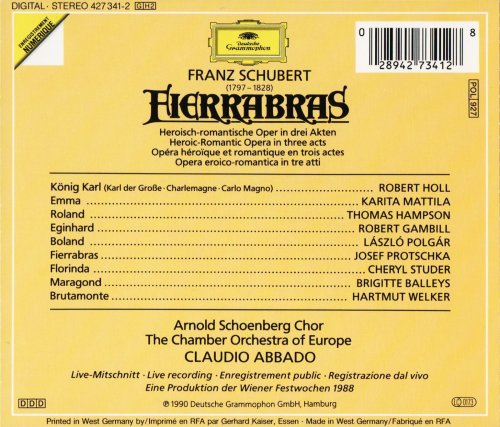

![VA - From the Archive Vol. 3... compiled by Volcov (2026) [Hi-Res] VA - From the Archive Vol. 3... compiled by Volcov (2026) [Hi-Res]](https://www.dibpic.com/uploads/posts/2026-02/1772033794_a3743742618_10.jpg)
![Maluca Beleza - Des Rivages (2026) [Hi-Res] Maluca Beleza - Des Rivages (2026) [Hi-Res]](https://www.dibpic.com/uploads/posts/2026-02/1772208763_cover.jpg)

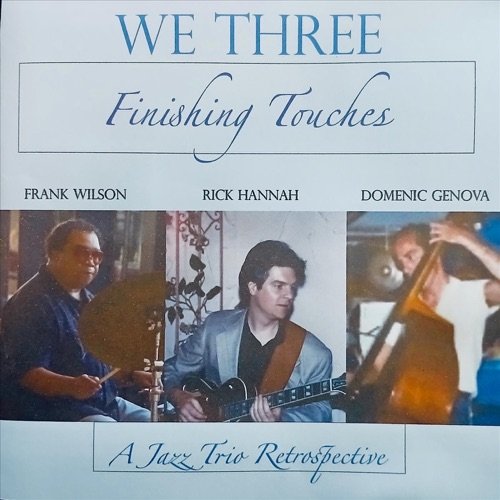
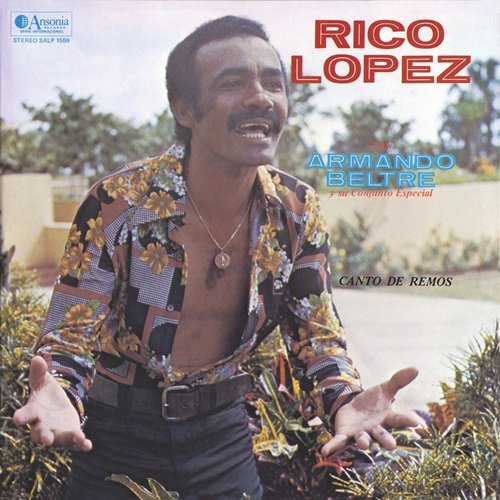
![Paul Giess - Phronesis (2026) [Hi-Res] Paul Giess - Phronesis (2026) [Hi-Res]](https://img.israbox.com/img/2026-03/03/jnvs3x8azp7r5exf5vijztdkf.jpg)
